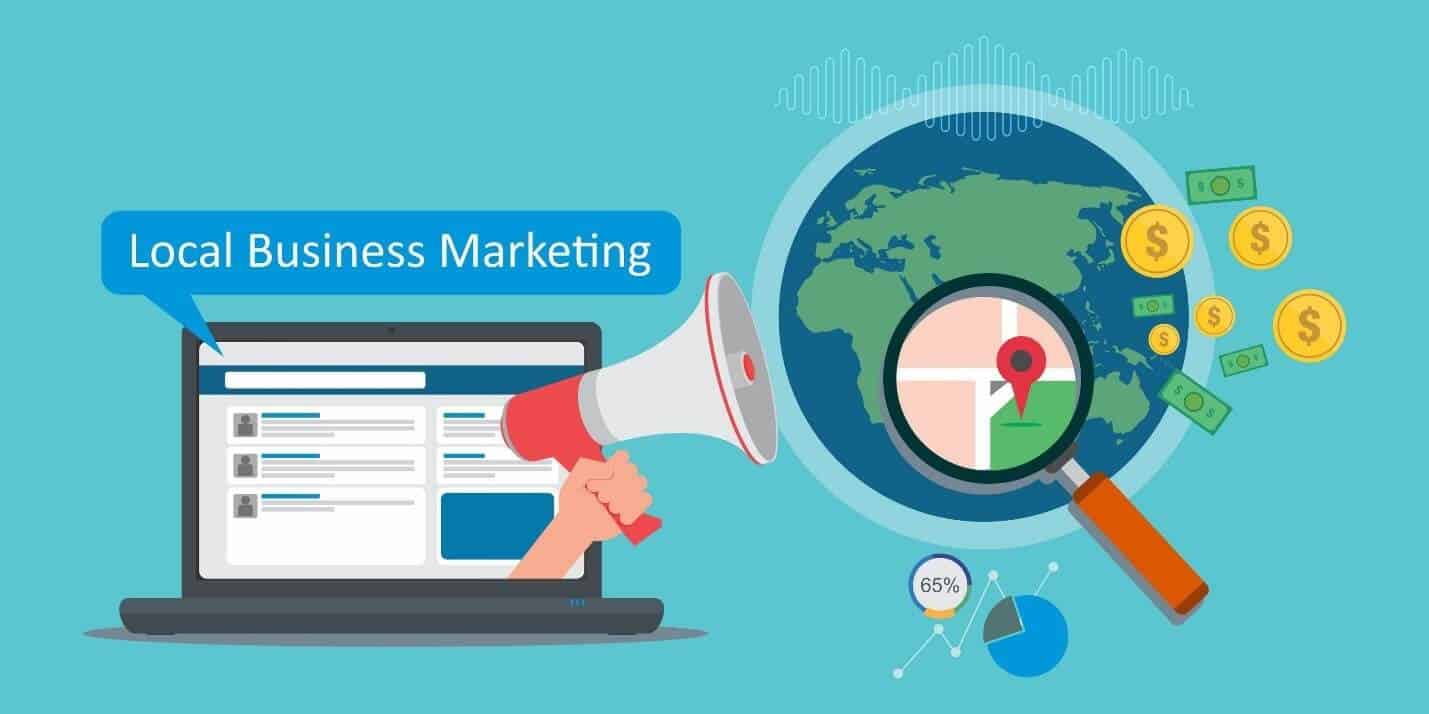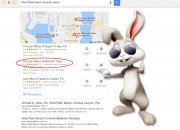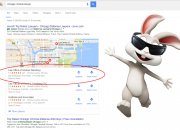
Citation building should be a key component of any local SEO strategy. By listing your business on directory sites, such as Yelp, CitySearch, and Yahoo! Local, you let potential clients who are searching those sites know that you exist. Additionally, you provide evidence to Google and other search engines that your business is real, genuine, and trustworthy.
Chances are, you probably know that. However, here is what you might not know: there is a lot of misinformation out there about the supposed “best practices” for citation building. This article will help you cut through the distortions, so you can focus on the most effective methods.
Listings on Google, Bing, and Apple Maps do not really count as citations. When someone goes on Google, Bing, or Apple Maps to find a business, those sites scour the web for other sites that list your business. Those other sites serve as citations for Google, Bing, Apple Maps, and other search engines, and let them know that your business can be trusted.
In other words, you cannot rely on simply posting your information on a search engine. You must also list your business on directory sites and keep those listings up-to-date to maintain or improve your search rank.
Citations matter little after a certain point. You absolutely must ensure that your business is listed on the top citation sites, but after a certain point, there are diminishing returns in terms of the value you get out of adding more citations.
Think of citations like this: you need them for search engines to acknowledge and trust your business. After a certain amount, though, the search engines get it. You’re real. You’re valid. Adding even more citations will do little to improve your rank.
If you want it to improve your rank from that point on, you will need to engage in additional local SEO best practices (most importantly, link building) and maintain the citation listings you already have with correct, up-to-date information.
Generally speaking, you want your business to have a strong core of around 50 or so citations. This should include a good mix of the top-ranking directory sites as well as the highest-ranking legal sites.
Here are the top citations for both of those categories:

Top General Business Citation Sites in the U.S.
- ExpressUpdate
- Localeze
- Acxiom
- Factual
- D&B
- Citysearch
- Bing Places
- Yelp
- Yellowpages
- Yahoo! Local
- Superpages
- com
- Foursquare
- Chamberofcommerce
- Yellowbot
- Yellowbook
- Kudzu
- MerchantCircle
- Manta
- Mapquest
- ShowMeLocal
- MojoPages
- HotFrog
- Brownbook
- Cylex-USA
- InsiderPages
- EZLocal
- Elocal
- Tupalo
- ForLocations
- CitySquares
- GetFave
- 2FindLocal
- Nokia Here
- Yasabe
- Angieslist
- SaleSpider
- FindTheBest
- Yellpedia
- MyHuckleberry
- ZipLocal
- MagicYellow
- City-Data
- Thumbtack
- MyWebYellow
- B2BYellowPages
- Pocketly
- Tuugo
- WikiDomo
Top Citation Sites for Lawyers
- lawyers.findlaw.com
- www.avvo.com
- www.justia.com
- www.lawyers.com
- www.yellowpages.com
- www.thumbtack.com
- attorneys.superlawyers.com
- www.hg.org
- www.yelp.com
- attorneys.lawinfo.com
- www.youtube.com
- lawyers.law.cornell.edu
- www.superpages.com
- local.dmv.org
- threebestrated.com
- www.martindale.com
- www.facebook.com
- www.nolo.com
- www.manta.com
- www.legalconsumer.com
*Important note: Many of the top sites – including top legal directory sites like Avvo and Justia – are completely free. Don’t pay until you do a quick search.
Whitespark has more comprehensive lists for both categories here and here. Linkio has a resource titled Directory Submission Sites With 200+ Directories, you may find useful, as well.
You don’t have to fix every “inaccuracy” on your listings. It is true that your listings need to be accurate. If you include wrong information, people are likely to become frustrated when trying to contact you. Eventually, Google’s algorithm will figure this out, and their response will be to lower your trust score – and, thus, your search ranking.
That being said, there are certain things that can be different from listing to listing without negatively impacting your rank. Two examples are your suite number and business name.
Business name differences. A lot of lawyers set up their directory listings piecemeal over months or even years. Or perhaps they are created by different legal assistants. As a result, the name on one listing might be John Smith, Attorney at Law, while another might be the Law Office of John Smith.
You may be worried this will confuse Google and cause it to treat the listings as different businesses, but fortunately this is not the case. This is because the search engine’s algorithm looks not only at your business name, but also the address and phone number. If listings have different names, but the same phone numbers and addresses, the algorithm is smart enough to figure out that it’s really the same business.
Differences in how suite names show up. This is a big one that a lot of businesses worry about: if your suite number looks different on a bunch of sites, will Google know that all those listings are for the same business?
Once again, trust the algorithm. It understands there are several different ways people may type in an address. For example, someone might type St. or Street. Because of this, the algorithm pays more attention to the location marker (pin) of your business on the map than the words you use.
Beyond this, Google understands that there is no standardization whatsoever to how suite numbers are added to all of the various listing sites out there. In fact, the suite numbers of most businesses on Google business listings simply are not recognized at all – and this won’t impact your ranking in the slightest.
 Your information probably isn’t wrong on hundreds of sites. There is a scare tactic that many less-reputable SEO companies use. They will do a scan of your listing data and send you a report showing you incorrect information on hundreds of different directories. The only solution, they say, is to pay them to manually go to these sites and fix the information.
Your information probably isn’t wrong on hundreds of sites. There is a scare tactic that many less-reputable SEO companies use. They will do a scan of your listing data and send you a report showing you incorrect information on hundreds of different directories. The only solution, they say, is to pay them to manually go to these sites and fix the information.
Obviously, receiving a report like this would be terrifying. How many potential clients are you missing out on? Do not agree to anything until you understand what is really happening though.
Have you had your business listed on hundreds of sites? Probably not. So why is the information out there? Because a number of the bigger listing sites feed that information to smaller local directories.
That means you do not need to go to each of those smaller directories individually and clean up the inaccuracies. Simply fix what is wrong at the “parent” listing and all the others will be corrected as well.
Moreover, Google does not even index the content on many of these smaller directories because no one is linking to it. If Google isn’t indexing a site, you do not have to worry about incorrect information there negatively impacting your ranking.
If you share a phone number with a now-defunct business, it can hurt you. Imagine that years ago there used to be a movie theater in your neighborhood. That theater had listings on directory sites. Then it closed down. After this, you opened your office, which was given the same phone number the theater used to have.
At first, you might not think this is an issue. A movie theater and a law office are in completely separate industries. Surely Google can tell the difference, so it won’t hurt your rank.
Unfortunately, while it is true that Google can differentiate between the two listings, here is what often happens. Some people continue to call your number looking for the theater. Google becomes aware of this. Because people are confused, Google lowers your trust score since it is not completely clear that the phone number belongs to you.
Luckily, there is a solution. You can work to get the defunct business’s listings removed or closed. As an added benefit, you will stop having to field phone calls for a totally different business.
By understanding what really matters in regards to citation building for your law practice, you can maximize the benefits you receive for the time, effort, and resources you invest.





 The Local Search Ranking Factors That Really Matter in 2017
The Local Search Ranking Factors That Really Matter in 2017 Your Guide to Better Local SEO Results
Your Guide to Better Local SEO Results A Look at Expert Tips Regarding Advanced Google+ Optimization
A Look at Expert Tips Regarding Advanced Google+ Optimization Go Local or Go Home: What Marketers Need to Know About Local SEO (LSEO)
Go Local or Go Home: What Marketers Need to Know About Local SEO (LSEO)